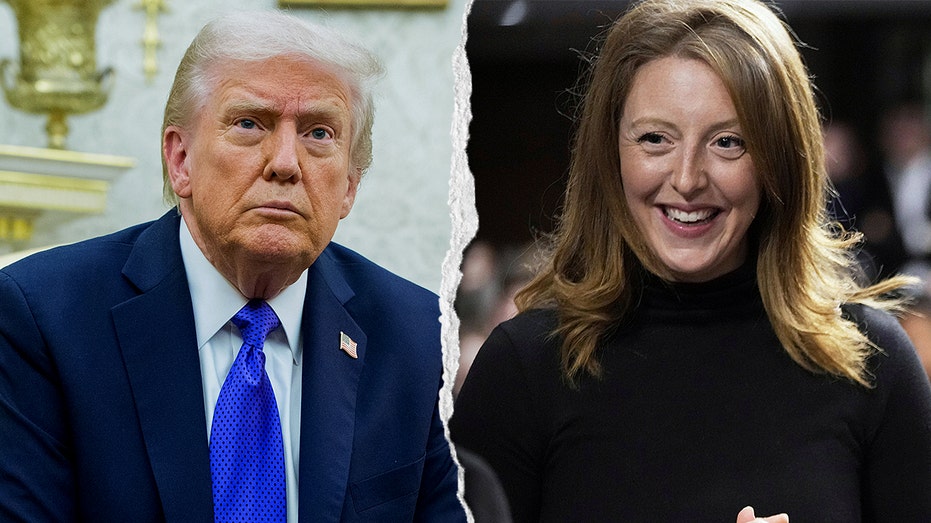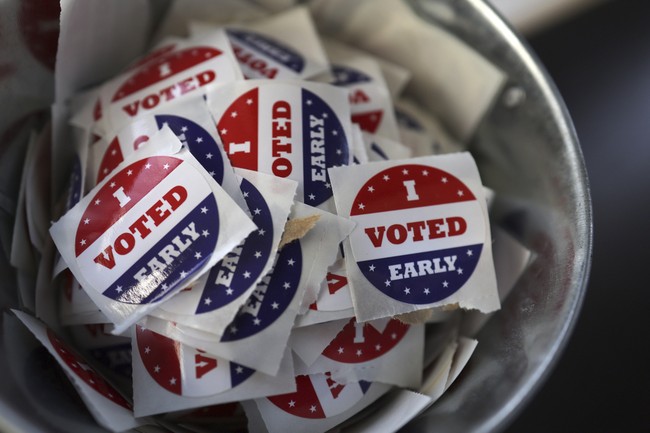The FBI has a longstanding pattern of using its internal review processes to dissuade whistleblowers, a former special agent told Fox Digital.
What started in 2021 as a workplace conflict for Special Agent Valentine Fertitta snowballed into a years-long dispute when Fertitta escalated concerns about his treatment, his wife said.
Emily Fertitta, who also served in the bureau under the Biden administration, believes that’s emblematic of a larger problem.
"A very simple equal employment opportunity case has grown into this huge whistleblower case that has implications for everybody," she said. "National security retaliation is huge for so many whistleblowers."
HOUSE REPUBLICANS ACCUSE BIDEN'S FBI OF RETALIATING AGAINST WHISTLEBLOWER WHO EXPOSED MISCONDUCT
After a deployment overseas, Valentine Fertitta returned home with serious injuries that limited his participation at work for the FBI. After a manager took issue with his reduced productivity, the agency blocked him from consideration of a promotion in 2021 — a decision Valentine Fertitta believed violated the FBI’s policies and federal employment law, according to the family's attorney.
"Val’s supervisor at the time — this guy is just obsessed with statistics," Matthew Crotty, the Fertitta family's legal counsel said. "He was a troublemaker, really obsessed with advancing in his career."
But that was only the beginning of Valentine Fertitta's conflict with the FBI.
TERRY ROZIER'S ATTORNEY ACCUSES FBI OF SEEKING 'MISPLACED GLORY' WITH NBA PLAYER'S ARREST
Believing that his management had violated government protections against injured employees among other employment safeguards for veterans, Valentine Fertitta filed a whistleblower complaint. Not long after, he received his first-ever negative work performance review, was denied access to trainings, was asked to provide past, present and future medical records and more, according to his wife.
Exasperated, Valentine Fertitta appealed his case to the Office of Attorney Recruitment and Management (OARM) — the FBI’s internal body charged with acting as a backstop against whistleblower retaliation.
Less than a month later, the FBI opened an evaluation of his security clearance, according to their lawyer.
"The key thing is the timing," Crotty said. "Within two weeks of Val starting this OARM process, the FBI starts to investigate Val’s suitability to hold a top-secret security clearance."
"The way the FBI can essentially fire you without saying ‘you’re fired’ is to just revoke your clearance," Crotty added.
Emily Fertitta explained that the process carries with it some punitive effects. Among them: suspension of pay during the time of review.
Emily Fertitta said the investigation also put pressure on her. As a part of the security clearance evaluation, she said the bureau asked her to testify against her husband in what was going to be a three-day interview. When she asked for legal counsel, she said the FBI denied her request.
Emily Fertitta decided to quit the agency. She said her husband’s clearance dispute is ongoing.
FBI AGENTS FIRED AFTER KNEELING AT GEORGE FLOYD PROTEST IN 2020: REPORTS
The Supreme Court has granted the FBI broad powers to make decisions about its employees and their security clearances, with few exceptions. That means that for their duration at the bureau, FBI agents have no external recourse to appeal a clearance dispute. Crotty said that goes for a lot of the internal review measures inside the FBI.
"It doesn’t matter who’s in the White House. It’s a structural FBI thing. It’s been going on since Hoover," Crotty said, referring to the FBI’s original director. "This is an agency that makes loyalty part and parcel to its core — and if you go against it by trying any of these internal processes — [they] are going to get back at you."
"This is what lawmakers need to know," Crotty said.
Emily Fertitta said other whistleblowers face similar opposition, pointing to public reporting provided by the FBI.
The OARM, the body that Valentine Fertitta had appealed to shortly before his clearance evaluation began, records complaints that the FBI has received from whistleblowers who believe they’ve faced some sort of retribution. In the past 10 annual reports submitted to Congress, OARM has received 107 complaints. In that time, OARM identified nine cases of retaliation.
"This is much bigger than Val and Emily. It applies to so many other people who just don’t have the ability to speak up," Emily Fertitta said.
She said the Biden administration did little to address the issue and hopes that, amid Trump’s openness to retool government structures, the new administration will follow through on promises of reform.
"Congress could fix this without costing the taxpayer a dime by saying hey, if you’re a reservist at the FBI, you can go to federal court — just like an Amazon worker can — you can make that claim before a federal jury in federal court. That’s what needs to change," Crotty said.
"Having a couple of jury verdicts that nail the FBI on retaliation; once the FBI starts cutting checks for millions of dollars in jury verdicts, that’s how stuff gets fixed," he added.
According to Crotty, the Fertitta family has a pending civil case against the FBI. That litigation faces delays amid pending internal FBI deliberations over Mr. Fertitta’s security clearance, he said.
The FBI declined to comment on the Fertitta case.
.png)
 3 hours ago
5
3 hours ago
5















 English (US)
English (US)